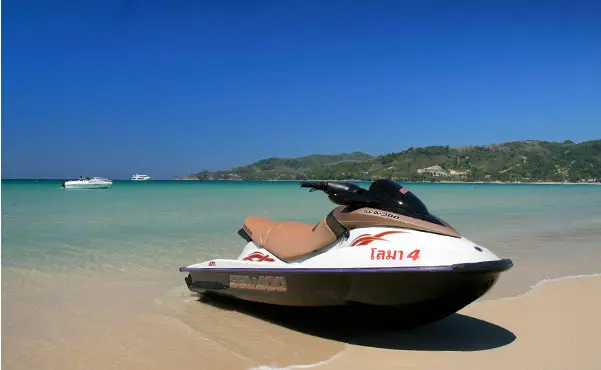The Philippines inked Tuesday a deal to purchase 16 combat utility helicopters from Canada worth 233 million US dollars for use in “internal security operations” to combat Islamist and communist rebels.
The Bell 412EPI helicopters will be delivered early next year as President Rodrigo Duterte re-focuses the armed forces modernization program to tackle growing domestic threats as Maoist fighters and pro-Islamic State extremists try to regroup.
Members of the Philippine Air Force honor guard march in front of newly acquired Bell-412EP helicopters from Canada during a turnover ceremony at the Philippine Air Force (PAF) headquarters in Villamor Air Base in Pasay City, Metro Manila August 17, 2015.
“The helicopters will be used for the military’s internal security operations,” Major-General Restituto Padilla, military chief of plans, told Reuters, adding the aircraft could also be used for search-and-rescue and disaster relief operations.
The helicopters would replace the second-hand Vietnam War-era UH-1H Huey rotary aircraft, the workhorse of the Philippine Air Force, acquired from the United States.
Defense Secretary Delfin Lorenzana signed the negotiated government contract with the Canadian Commercial Corporation, which was licensed to sell the American military aircraft.
It was the second time the Philippines has acquired Bell helicopters. In 2014, it bought eight lower variants of the aircraft for 4.8 billion pesos.
The Philippines is spending 125 billion pesos for the next five years to modernize its armed forces, but putting priority on equipment and armaments for internal security operations to defeat domestic threats as well protect its maritime borders.
It is also acquiring three frigates from South Korea, air defense radars from Israel, armored vehicles, a long-range patrol aircraft and assault rifles and grenade launchers from Russia.
Human rights concerns
The sale, however, was denounced by human rights activists questioning the real intentions of the Duterte administration and Canada’s participation in arming a regime accused of widespread human rights abuses.
According to a report from the CBC, Canadian-based International Coalition for Human Rights in the Philippines (ICHRP) wrote to Foreign Affairs Minister Chrystia Freeland last May to inquire if the first batch of Bell helicopters sold in 2014 were being used in air strikes that have allegedly killed civilians.
It happened after Duterte ordered his forces to go after an armed communist group who killed four police officers last March. Not particularly concerned about who gets caught in the crossfire, Duterte went on to say, “if there’s collateral damage, pasensya [a Tagalog word that means ‘too bad’].” Bern Jagunos, who wrote the letter on behalf of the coalition, told The Canadian Press on Tuesday that Freeland never responded.
“The Liberal government had pledged to uphold higher standards after the terrible Saudi arms deal, but instead it is selling to the worst and most repressive regime in Asia where the president brags about personally shooting drug users and throwing people out of helicopters,” said Steve Staples, vice president of the Rideau Institute in Ottawa, in an interview with the National Post. “How long will it be until the (Philippine) military is using the helicopters during executions?”
Philippine President Rodrigo Duterte gestures while walking with Canada's Prime Minister Justin Trudeau after their family photo during the ASEAN-Canada 40th anniversary commemorative summit in Metro Manila, Philippines November 14, 2017.
Staples pointed out that the deal would not have gone through without the backing of the Canadian government and the Canadian Commercial Corporation, a Crown corporation.
Cesar Jaramillo, executive director of Project Ploughshares, an organization that works to prevent war and armed violence, warned the deal could have serious ramifications. “Given President Duterte’s abysmal human rights record — which Ottawa is no doubt aware of — this raises troubling questions about the risk of the helicopters being equipped with weapons and of their use in human rights violations,” Jaramillo told Postmedia.
He also noted that the sale exposed a major loophole in Canada’s military export controls. “Although the helicopters are being supplied for military use, they are classified by the Canadian government as civilian and thus their export does not require special authorization.”
Canada’s New Democratic Party (NDP) member and foreign affairs critic, Hélène Laverdière, called on Freeland to refuse approval for the export permits needed for the helicopter sale. “How can Trudeau justify this deal with the Philippines when Duterte’s government has plunged the country into a terrible human rights crisis?” Laverdière tweeted.
In 2016, the US State Department denied the Philippines the export of 26,000 assault rifles over human rights concerns.
Philippine President Rodrigo Duterte (2nd R) and Armed Forces of the Philippines (AFP) chief Eduardo Ano (2nd L) inspect Kalashnikov rifles with Russia's Defence Minister Sergei Shoigu (R) during the handover ceremony at the Port of Manila on October 25, 2017. Russia handed over thousands of assault rifles to Duterte, as it celebrated its new partnership with a longtime US military ally in Asia.
In a televised speech, Duterte responded to the US decision: "Look at these monkeys, the 26,000 firearms we wanted to buy, they don't want to sell. Son of a bitch, we have many homemade guns here. These American fools."
Last month, during a meeting with Prime Minister Narendra Modi in New Delhi, Duterte manifested that he might purchase the guns from India, in the same way he has decided to purchase weapons from China and Russia.
(CGTN)
 简体中文
简体中文

